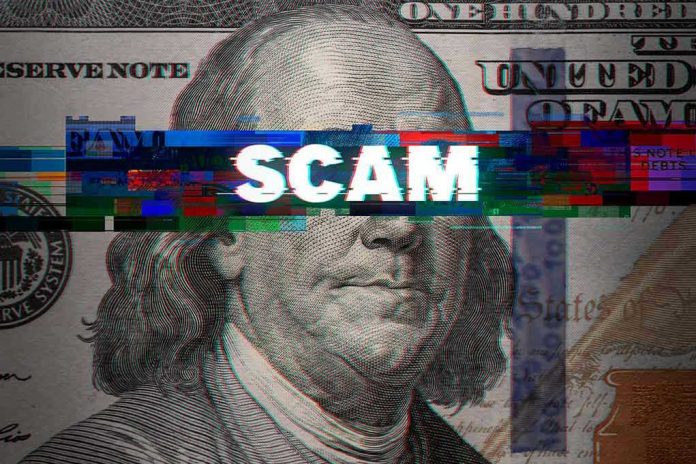
Fraudsters didn’t wait for the floodwaters to recede in Central Texas—they waded right in, exploiting tragedy and chaos for their own gain, leaving victims and generous Americans wondering if disaster relief is yet another front in the war on common sense.
At a Glance
- Flash flooding in Central Texas caused over 90 deaths and widespread devastation during July 2025’s holiday weekend.
- Scammers immediately launched fake charity and impersonation schemes, hijacking donation efforts meant for real victims.
- Banks, law enforcement, and federal agencies scrambled to warn the public and fight back against disaster-related fraud.
- Long-term impacts include economic loss, community trauma, and renewed scrutiny of disaster preparedness and fraud prevention.
Texas Floods: Tragedy Turns to Target for Scammers
The July 2025 flash floods in Central Texas struck with historic ferocity, catching families, first responders, and state agencies off-guard as rivers surged more than two dozen feet in less than an hour. For many, the devastation was heartbreakingly personal: at least 91 lives lost, entire neighborhoods under water, and summer camps turned into frantic rescue sites. Yet while the region reeled, opportunistic criminals saw their own opportunity. They quickly set up fake donation accounts, cloned the names and logos of trusted local groups like the Center Point Volunteer Fire Department, and began siphoning off money from well-meaning Americans desperate to help their fellow citizens.
The sheer speed of these scams was staggering. Within 48 hours of the flood’s peak, the Center Point VFD’s legitimate Venmo account was suspended, thanks to a swarm of fraudulent accounts designed to confuse donors. The account has since been restored, but not before the damage was done. Meanwhile, federal agencies like the DOJ’s National Center for Disaster Fraud (NCDF) and watchdogs including the American Bankers Association issued urgent warnings: beware of charities you’ve never heard of, verify before donating, and report suspicious activity immediately.
Criminals Exploit Chaos While Institutions Scramble
Scammers’ tactics have evolved with the times: they’re not just cold-calling or sending emails anymore—they’re using social media, payment apps, and even AI-generated websites to impersonate real relief efforts. After the Center Point incident, banks and financial institutions across Texas ramped up fraud detection protocols, pushing out alerts to customers and urging everyone to double-check before giving. The NCDF, originally set up after Hurricane Katrina, has seen spikes in reports of disaster fraud with every new catastrophe, but the 2025 Texas flood cycle is shaping up to be one of the worst in recent memory.
Law enforcement, stretched thin by rescue and recovery operations, is now tasked with a parallel battle: tracking down professional scammers who often operate from out-of-state or even overseas. According to expert analysis from the Association of Certified Fraud Examiners and the Independent Community Bankers of America, moments of crisis leave people vulnerable to manipulation—especially when the government’s own disaster response systems are overwhelmed.
Recovery Marred by Fraud, Distrust, and Endless Red Tape
As the water recedes, the true toll of the disaster extends beyond physical damage and lost lives. Billions of dollars in property destruction have left insurance companies and state budgets reeling. But the legacy of this flood may be measured just as much in the erosion of public trust. Each fake charity or impersonation scheme not only steals from the pockets of donors, but sows lingering skepticism about whether anyone can tell the good actors from the bad. Charitable organizations now face an uphill battle to prove their legitimacy, while honest Americans are left second-guessing every GoFundMe and Venmo plea that crosses their social media feeds.
The broader impact is a battered sense of community and a renewed call for tougher oversight, both of fundraising platforms and emergency management protocols. Some experts are calling for pre-disaster fraud awareness campaigns, mandatory verification for all aid accounts, and real-time coordination between banks, law enforcement, and relief groups. Yet if history is any guide, the scammers will always be one step ahead of the bureaucracy—and the government’s red tape will tie itself in knots before it ever tangles up the real criminals.









